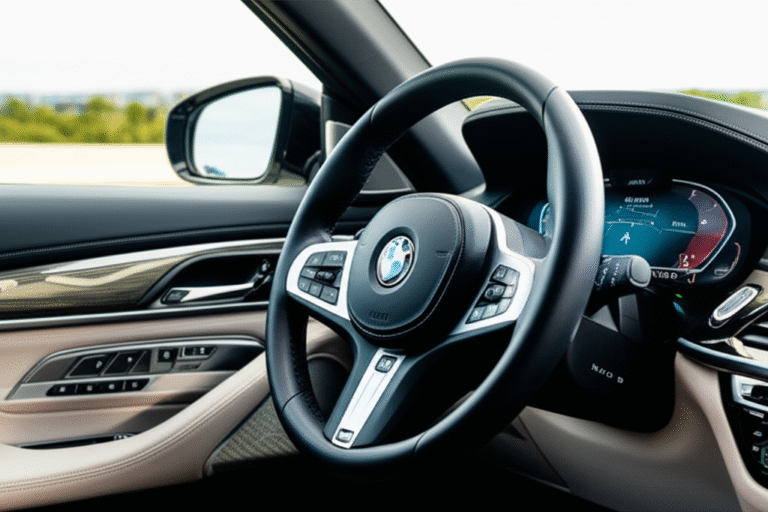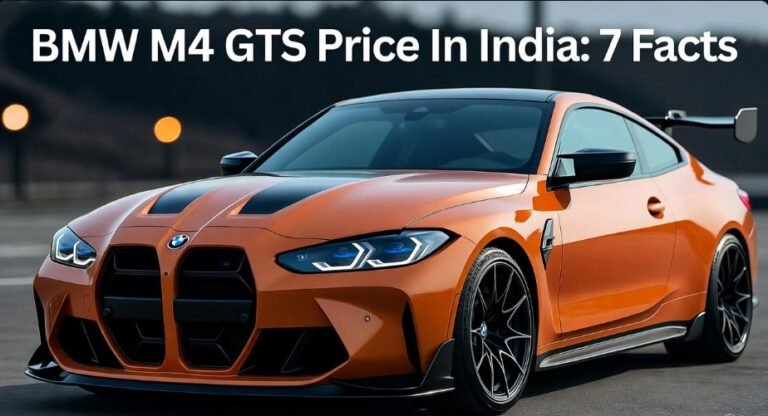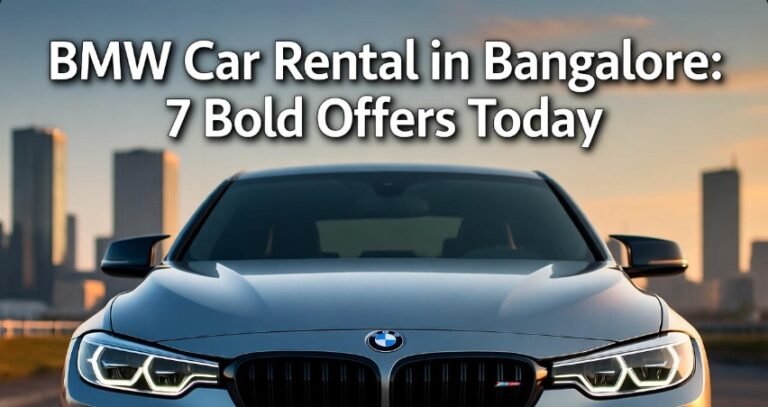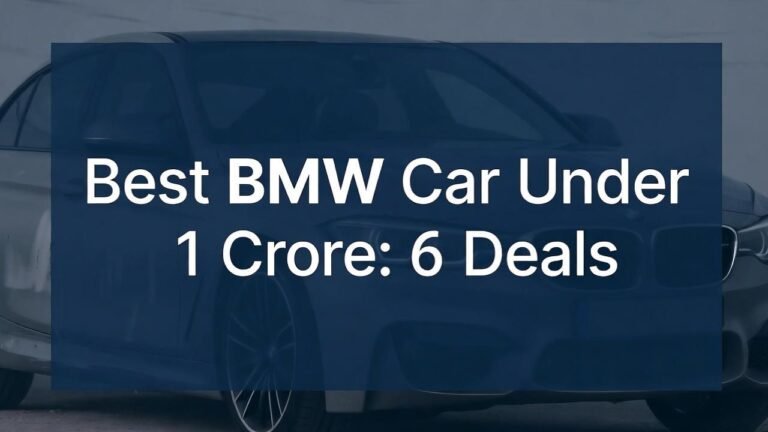BMW 18 Inch Alloy Wheels: 7 Bold Deals
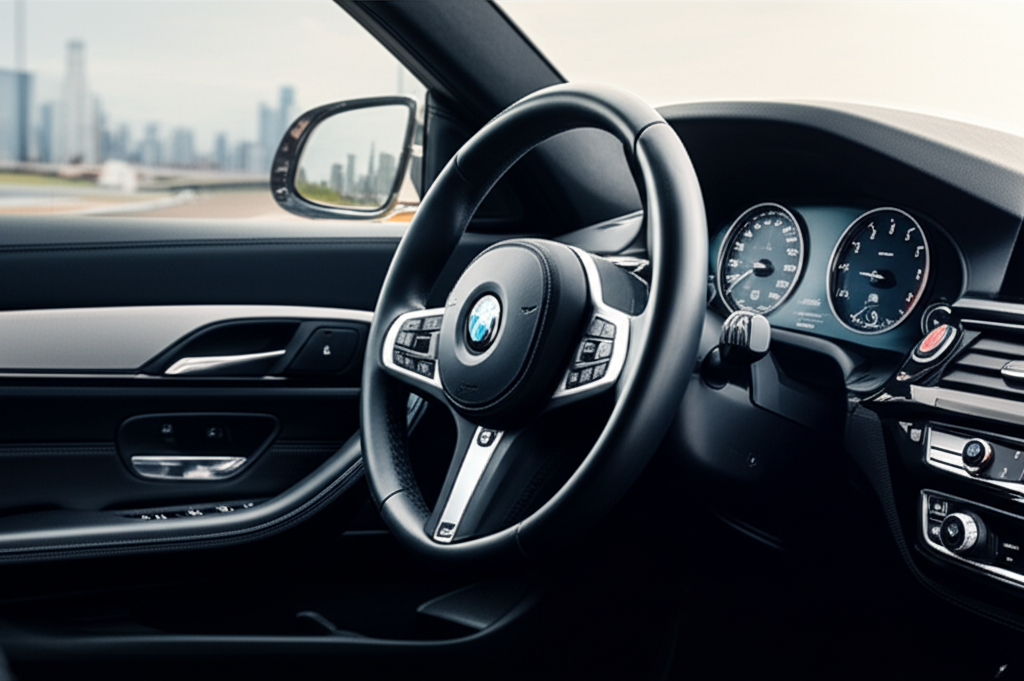
Transform your BMW with 18-inch alloy wheels! Discover 7 bold deals offering style, performance, and value, perfect for enhancing your ride. Get ready to upgrade your driving experience.
Key Takeaways
- Boost your BMW’s aesthetics with 18-inch alloys.
- Enhance handling and performance with wheel upgrades.
- Discover 7 curated deals for various BMW models.
- Learn crucial factors for selecting the right wheels.
- Understand installation and maintenance best practices.
- Find trusted sources for purchasing BMW 18-inch alloys.
Are you looking to give your BMW a significant upgrade? Sometimes, the most impactful changes come from focusing on the wheels. Switching to 18-inch alloy wheels can dramatically alter your car’s appearance and even its performance. It’s a popular modification for BMW owners across the USA, seeking that perfect blend of sportiness and elegance. However, navigating the world of aftermarket wheels can feel overwhelming with so many options and technical specifications. You might be wondering which wheels are best for your specific BMW model or where to find the best value. This guide is here to help. We’ll break down everything you need to know about BMW 18-inch alloy wheels and present you with 7 bold deals that offer both style and substance. Let’s dive into how you can elevate your BMW’s presence on the road.
Why Choose 18 Inch Alloy Wheels for Your BMW?
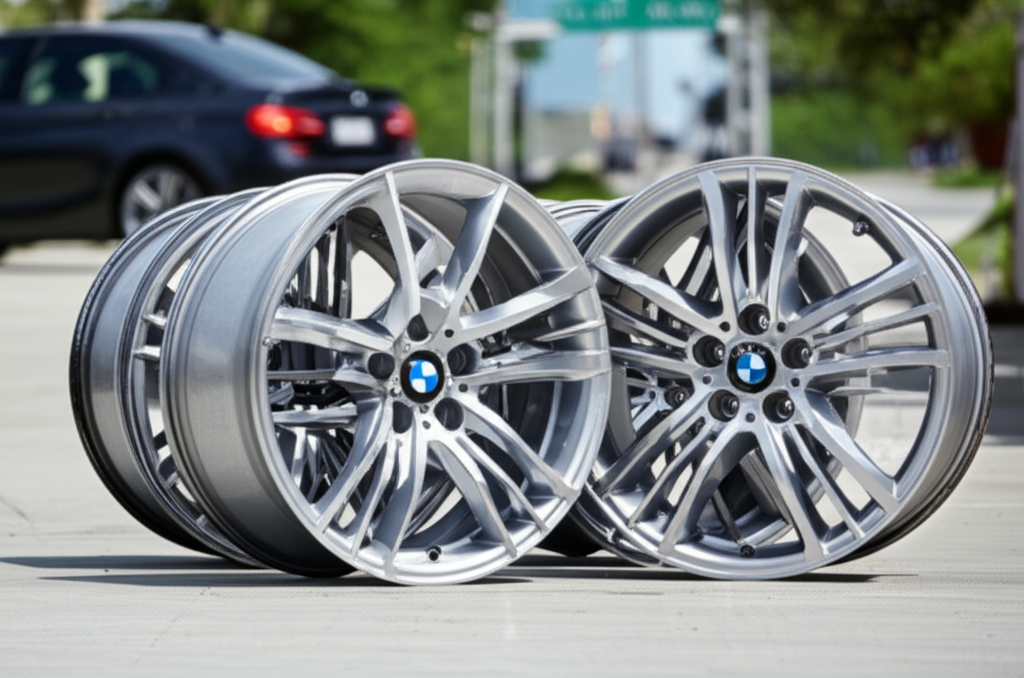
When it comes to enhancing your BMW, few upgrades offer as much visual and performance impact as a new set of wheels. Specifically, 18-inch alloy wheels have become a sweet spot for many BMW enthusiasts. They strike a fantastic balance between aggressive aesthetics, improved handling, and maintaining a comfortable ride. Larger wheels, like 19-inch or 20-inch options, can sometimes compromise ride comfort and increase the risk of tire damage on less-than-perfect roads, which are common across various regions in the USA. Conversely, smaller wheels might not offer the same sporty stance or dynamic advantage.
18-inch wheels are a popular choice because they typically offer a wider range of tire options, often at a more accessible price point than larger diameters. This size allows for a good amount of sidewall on the tire, which helps absorb road imperfections, crucial for daily driving comfort. Simultaneously, the larger diameter compared to stock wheels (often 16 or 17 inches) can accommodate larger brake systems, improving stopping power and heat dissipation – a nod to BMW’s performance heritage.
Furthermore, alloy wheels are generally lighter than traditional steel wheels. This reduction in unsprung weight is a key factor in improving your BMW’s acceleration, braking, and steering response. You’ll notice a more agile feel when cornering and a quicker reaction to throttle inputs. Visually, 18-inch wheels fill the wheel arches more effectively, giving your BMW a more planted and purposeful stance. This aesthetic enhancement is a primary driver for many owners looking to customize their vehicles.
Understanding BMW Wheel Specifications: What You Need to Know
Before you jump into the “7 Bold Deals,” it’s crucial to understand the technical language of wheels. Getting these specifications right is paramount for fitment, safety, and optimal performance. Incorrectly sized wheels can lead to rubbing, poor handling, speedometer inaccuracies, and even potential damage to your vehicle’s suspension and drivetrain.
Here are the key specifications to look for:
- Diameter: This is the most obvious spec, referring to the wheel’s size from one end to the other. For this guide, we’re focusing on 18 inches.
- Width (Rim Width): Measured in inches, this is the distance between the wheel’s inner flanges where the tire bead seats. Common widths for 18-inch BMW wheels can range from 7.5 inches to 9.5 inches, depending on the model and whether it’s a staggered setup (wider rear wheels).
- Bolt Pattern (PCD – Pitch Circle Diameter): This describes the number of lug holes and the diameter of the circle on which they are arranged. BMWs typically use a 5-lug pattern. For instance, many common BMW models use a 5x120mm bolt pattern. It’s vital to match this exactly.
- Offset (ET): The offset is the distance from the wheel’s mounting surface to the centerline of the wheel. It dictates how far inward or outward the wheel sits in the fender well. A positive offset means the mounting surface is closer to the wheel’s outer face, while a negative offset means it’s closer to the inner face. The correct offset is crucial for avoiding suspension component interference and ensuring proper fitment. For BMWs, offsets can vary significantly by model and generation, often falling in the +30mm to +45mm range for many applications.
- Center Bore: This is the diameter of the hole in the center of the wheel that the wheel hub fits into. BMWs often have a specific center bore size (e.g., 72.56mm for many models). Using wheels with the correct center bore, or appropriately sized hub-centric rings if necessary, is essential for proper wheel seating and vibration-free driving.
Example BMW Wheel Specification: A common specification might look like 18×8.5 ET35 5×120. This means an 18-inch diameter, 8.5-inch width, a +35mm offset, and a 5x120mm bolt pattern.
Always consult your BMW owner’s manual or a trusted automotive parts specialist to confirm the exact specifications for your specific model and year. Websites like Wheel-Size.com offer extensive databases for vehicle bolt patterns and other wheel specifications.
7 Bold Deals on BMW 18 Inch Alloy Wheels
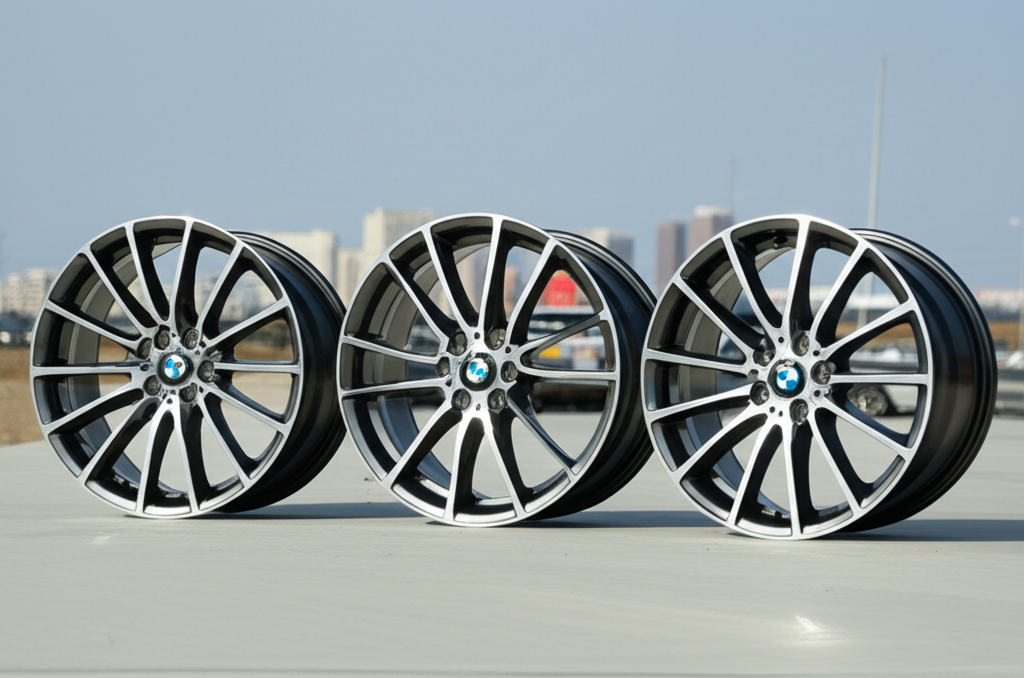
Now that you’re equipped with the knowledge of what to look for, let’s explore some fantastic options for 18-inch alloy wheels that blend style, quality, and value. These deals are curated to offer a range of designs suitable for various BMW models, from the sporty 3 Series to the elegant 5 Series and the versatile X models.
Deal 1: Apex Wheels ARC-8R (Flow Formed)
Apex Wheels are renowned in the BMW community for their high-performance, track-inspired, yet street-friendly designs. The ARC-8R is a prime example of their commitment to quality engineering. These wheels are manufactured using a flow-forming process, which results in a stronger, lighter, and more impact-resistant barrel compared to traditional casting.
- Style: Multi-spoke, motorsport-inspired design.
- Material: Flow-formed aluminum alloy.
- Weight: Significantly lighter than OEM wheels, typically in the low 20 lbs range for 18×9 sizes.
- Fitment: Available in specific offsets and bolt patterns for a wide range of BMW models (e.g., E36, E46, E90, F30, F80 M3/M4).
- Performance Benefits: Reduced unsprung weight improves acceleration, braking, and handling. Optimized for aggressive tire sizes.
- Why it’s a deal: While not the cheapest, the performance gains and durability of flow-formed wheels offer exceptional value for enthusiasts who demand the best.
Deal 2: BBS SR (Genuine BBS Quality)
BBS is a legendary name in the wheel industry, synonymous with quality, performance, and iconic design. The BBS SR wheels offer a taste of that heritage in a robust and stylish package. These wheels are built to stringent standards, ensuring reliability and a premium look.
- Style: Classic 5-spoke design with a clean, sophisticated finish.
- Material: High-quality aluminum alloy (often gravity cast).
- Weight: Competitive weight for their class, balancing strength and mass.
- Fitment: Often available in OE-like specifications for various BMW series, ensuring a straightforward fit.
- Performance Benefits: Improved aesthetics and durability, maintaining a comfortable ride.
- Why it’s a deal: You’re investing in the BBS name and quality at a more accessible price point than their forged lines, making genuine BBS craftsmanship attainable.
Deal 3: Enkei Performance Series (e.g., Raijin)
Enkei is a major player in both OEM and aftermarket wheels, known for their innovative designs and robust construction. Their Performance Series wheels, like the Raijin, bring a sporty and aggressive look to your BMW.
- Style: Aggressive, mesh or multi-spoke designs often with sharp lines.
- Material: Aluminum alloy (often using Enkei’s proprietary casting technologies like MAT).
- Weight: Engineered to be lighter than stock, enhancing responsiveness.
- Fitment: Various widths and offsets are usually available, often with universal 5-lug patterns that can be made BMW-specific with correct PCD.
- Performance Benefits: Enhanced visual appeal and a slight reduction in unsprung weight for better dynamics.
- Why it’s a deal: Enkei offers a great balance of modern design, reliable performance, and excellent value for money, making it a popular choice for budget-conscious upgrades.
Deal 4: TSW Rivale (Concave Design)
TSW has a strong reputation for stylish and well-engineered wheels, often featuring deep concave profiles that give a more aggressive, wider stance. The Rivale is a popular choice for its modern aesthetics.
- Style: Rotary-forged, often with a deep concave face and intricate spoke patterns.
- Material: Rotary-forged aluminum alloy (a process that bridges casting and forging for strength and weight savings).
- Weight: Lighter than cast wheels, contributing to improved performance.
- Fitment: Designed with BMW fitment in mind, offering specific offsets and bolt patterns.
- Performance Benefits: Striking visual upgrade, improved handling due to lower weight.
- Why it’s a deal: Rotary forging offers a significant upgrade in strength and weight reduction over cast wheels, at a price point that’s often more affordable than fully forged options.
Deal 5: OEM Style Wheels (Reputable Aftermarket Brands)
If you love the look of a specific BMW factory wheel but want a more affordable option, reputable aftermarket brands offer high-quality OEM-style wheels. These are designed to mimic the look of original BMW wheels but are produced by a third party.
- Style: Replicas of popular BMW designs (e.g., M Sport wheels, Style 403M, Style 398).
- Material: Cast aluminum alloy.
- Weight: Generally comparable to OEM wheels, sometimes slightly heavier.
- Fitment: Designed to replicate OEM specifications, ensuring a proper fit for specific BMW models.
- Performance Benefits: Primarily an aesthetic upgrade, identical to OEM look without the OEM price tag.
- Why it’s a deal: This is often the most budget-friendly way to achieve an OEM or specific M-Sport look, making it an excellent choice for cosmetic upgrades. Ensure you buy from a reputable supplier to guarantee quality.
Deal 6: VMR Wheels (Lightweight Performance)
VMR Wheels (Velocity Motoring) specializes in creating high-quality, lightweight alloy wheels specifically for European cars, with a strong focus on BMW. Their designs are often inspired by OEM aesthetics but with a performance-oriented twist.
- Style: Clean, elegant, and sometimes aggressive designs, often with subtle concavity.
- Material: Flow-formed or cast aluminum alloy.
- Weight: Engineered for significant weight reduction compared to stock wheels.
- Fitment: Extensive range of fitments catered specifically to various BMW chassis codes.
- Performance Benefits: Noticeable improvement in acceleration, braking, and handling due to reduced unsprung weight.
- Why it’s a deal: VMR offers a superb combination of aggressive styling, significant weight savings, and a premium finish at a competitive price point, especially for their flow-formed lines.
Deal 7: Rotiform Wheels (Custom & Bold Designs)
For those looking to make a truly bold statement, Rotiform offers some of the most distinctive and customizable wheel designs on the market. While often associated with a more ‘show’ aesthetic, they also offer performance-oriented options.
- Style: Highly customizable, from classic multilug designs to modern, intricate patterns. Often available in bespoke finishes.
- Material: Typically cast or forged aluminum alloy, with custom order options.
- Weight: Varies greatly by design and construction method; forged options are lighter.
- Fitment: Can often be custom-ordered to specific BMW fitments, including offset and bolt pattern.
- Performance Benefits: Primarily a visual upgrade, but lighter forged options will improve dynamics.
- Why it’s a deal: These are for the owner who wants a unique, head-turning look. The “deal” here is the ability to stand out from the crowd with a truly personalized wheel, though they represent a higher investment.
Choosing the Right Tires for Your 18 Inch Wheels
Selecting the correct tires to pair with your new 18-inch alloy wheels is just as important as choosing the wheels themselves. Tire choice significantly impacts ride comfort, grip, noise levels, and fuel efficiency. For a BMW, especially one designed for a premium driving experience, the tire is a critical component.
When selecting tires for 18-inch wheels, consider the following:
- Tire Size: This is usually expressed as a series of numbers like 225/40R18.
- 225: The width of the tire in millimeters.
- 40: The aspect ratio, which is the tire’s sidewall height as a percentage of its width (so, 40% of 225mm). A lower aspect ratio generally means a stiffer sidewall, better handling, but a firmer ride.
- R: Stands for Radial construction.
- 18: The diameter of the wheel the tire is designed to fit (18 inches).
- Load Index: This number indicates the maximum weight each tire can carry. Ensure it meets or exceeds your BMW’s requirements.
- Speed Rating: This letter (e.g., V, W, Y) indicates the maximum speed the tire can sustain. Match or exceed your BMW’s original rating for optimal performance and safety.
- Tire Type:
- All-Season: Good for year-round driving in most US climates, offering a balance of performance in various conditions.
- Summer/Performance: Optimized for dry and wet grip in warmer temperatures, offering superior handling but less grip in cold or snow.
- Winter/Snow: Essential for driving in heavy snow and icy conditions, providing maximum traction.
- Run-Flat Tires: Many BMWs come equipped with run-flat tires, which allow you to drive for a limited distance at reduced speed even after a puncture. Consider if you want to maintain this feature.
Recommendation: For a good balance of summer performance and tread life for a BMW, consider brands like Michelin (Pilot Sport series), Continental (ExtremeContact series), or Bridgestone (Potenza series). For all-season capabilities, Michelin’s A/S variants, Continental’s DWS 06, or Pirelli’s P Zero All Season Plus are excellent choices. Always verify tire size compatibility with your chosen 18-inch wheels and your BMW model.
Installation and Maintenance Tips for Your New Wheels
Once you’ve chosen your 18-inch alloy wheels and tires, proper installation and ongoing maintenance are key to ensuring they perform optimally and last for years. This is where professional expertise is highly recommended.
Professional Installation is Crucial
While the concept of changing wheels seems simple, precise installation is critical for safety and vehicle integrity. We strongly advise having your new wheels and tires installed by a qualified professional at a reputable tire shop or BMW specialist.
Here’s what a professional installation typically involves:
- Mounting and Balancing: Tires are mounted onto the new wheels, and then the wheel-tire assembly is balanced using weights to ensure smooth rotation and prevent vibrations.
- Lug Nut Torque: Lug nuts are tightened to the manufacturer’s specified torque using a torque wrench. This is vital; under-tightening can cause the wheel to loosen, while over-tightening can damage the studs or wheel. BMW typically requires specific torque values, often in the range of 100-140 lb-ft (135-190 Nm), but always verify this for your specific model.
- TPMS (Tire Pressure Monitoring System) Reset: If your BMW is equipped with TPMS sensors in the wheels, these need to be transferred to the new wheels and often reset or reprogrammed to communicate with your car’s system.
- Alignment Check: After installing new wheels and tires, it’s a good practice to have your wheel alignment checked. While new wheels themselves rarely cause alignment issues, it’s the perfect time to ensure everything is optimal after the suspension has been worked on.
Regular Maintenance for Longevity
Alloy wheels, while durable and attractive, require care to maintain their appearance and integrity.
- Regular Cleaning: Wash your wheels regularly with a mild soap and water solution and a soft cloth or sponge. Avoid harsh chemicals, abrasive cleaners, or stiff brushes that can scratch the finish. Many BMW owners use specialized wheel cleaners, but always test on an inconspicuous area first and follow product instructions carefully.
- Inspect for Damage: Periodically check your wheels for any signs of damage, such as dents, cracks, curb rash, or significant scratches. Early detection can prevent minor issues from becoming major problems.
- Check Tire Pressure: Properly inflated tires are crucial for safety, handling, and tire wear. Check your tire pressure monthly using a reliable gauge, especially before long drives. The recommended pressures are usually found on a sticker in the driver’s side doorjamb or in your owner’s manual.
- Avoid Road Hazards: While 18-inch wheels offer a great look, be mindful of potholes and curbs, especially if you’ve opted for lower-profile tires (smaller aspect ratio). Hitting a severe pothole can damage both the wheel and the tire.
- Winter Care (if applicable): If you drive in areas with salted roads during winter, it’s especially important to clean your wheels thoroughly after exposure to salt, as it can be corrosive over time.
Pro Tip: Consider applying a ceramic coating or a quality wheel sealant to your new alloys. This creates a protective barrier that repels brake dust and makes cleaning much easier, helping to preserve that fresh, shiny look for longer.
Frequently Asked Questions (FAQ)
Q1: Will 18-inch wheels fit my BMW if it came with 17-inch wheels?
Generally, yes. Many BMW models are designed with significant wheel well clearance that can accommodate an increase of one or two inches in diameter. However, you must verify the specific bolt pattern, offset, and center bore compatibility for your exact BMW model and year. It’s also important to ensure the overall tire diameter (wheel + tire height) doesn’t change drastically, as this can affect speedometer readings and ABS/traction control systems. Always consult your owner’s manual or a professional.
Q2: Are 18-inch alloy wheels heavier than my stock BMW wheels?
Often, yes, especially if your stock wheels are smaller diameter or made of steel. However, many aftermarket 18-inch alloy wheels, particularly those made with flow-forming or forging processes (like Apex ARC-8R or some TSW and VMR models), are designed to be significantly lighter than OEM cast alloy wheels of the same or even smaller diameters. Reduced weight (unsprung mass) improves performance.
Q3: Can I use my old tires on new 18-inch wheels?
No, you cannot. Tires are specific to wheel diameter. If you are buying 18-inch wheels, you will need new tires that are sized for an 18-inch rim (e.g., 225/40R18). The tire’s bead diameter must match the wheel’s diameter precisely.
Q4: How does changing to 18-inch wheels affect my ride comfort?
Switching to 18-inch wheels, especially with a lower aspect ratio tire (e.g., 225/40R18 compared to 225/55R17), will generally result in a firmer ride. The smaller sidewall offers less cushioning between the wheel and the road. However, the quality of the wheel and tire, along with proper balancing and inflation, can mitigate this significantly. Some owners find the improved handling and aesthetics outweigh a slight reduction in comfort.
Q5: What is the difference between cast, flow-formed, and forged wheels?
Cast wheels are the most common and affordable, made by pouring molten aluminum into a mold. Flow-formed wheels start as cast wheels, but the barrel is spun and pressurized to alter the metal’s grain structure, making it stronger and lighter. Forged wheels are made by forcing solid aluminum through intense pressure, creating the strongest and lightest type of wheel, but also the most expensive. For BMWs, flow-formed wheels often offer the best balance of performance, durability, and price.
Q6: Where is the best place to buy BMW 18-inch alloy wheels in the USA?
Reputable sources include authorized dealers of brands like Apex, BBS, Enkei, TSW, VMR, and Rotiform. Online retailers specializing in wheels and tires, such as Tire Rack, Vivid Racing, ECS Tuning, and specialized BMW parts suppliers, are also excellent options. Always ensure the vendor offers proper fitment guarantees and has good customer reviews. Buying directly from brand websites like Apexwheel.com or BBS.com also ensures authenticity and support.
Q7: Do 18-inch wheels require special lug nuts?
Sometimes. While many aftermarket wheels use standard lug nuts (often conical or spherical seat), some may require different types, especially tuner wheels which might use smaller diameter lug nuts. BMWs typically use conical seat lug nuts. It’s crucial to confirm the seat type and size required by your specific aftermarket wheels. Your installer will ensure they use the correct ones.
Conclusion
Upgrading your BMW with 18-inch alloy wheels is a fantastic way to enhance its visual appeal and driving dynamics. Whether you’re drawn to the motorsport-inspired performance of Apex ARC-8Rs, the timeless quality of BBS SR, the aggressive styling of TSW Rivale, or the unique flair of Rotiform, there are excellent deals available for every taste and budget. Remember to prioritize correct fitment by understanding your BMW’s specific wheel specifications and choosing tires that complement your driving needs and comfort preferences.
By investing in quality wheels and ensuring professional installation and regular maintenance, you’ll not only elevate your BMW’s presence on the road but also enjoy a more responsive and engaging driving experience. Explore these bold deals and get ready to turn heads!

